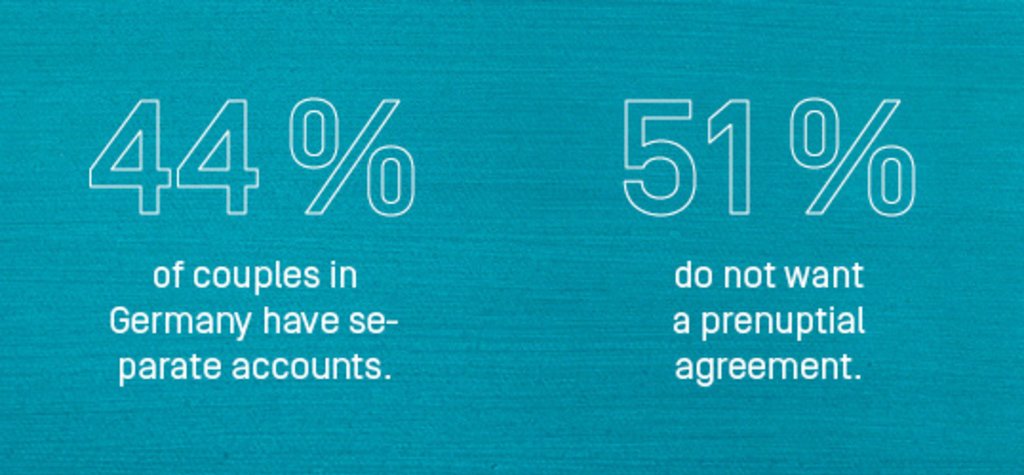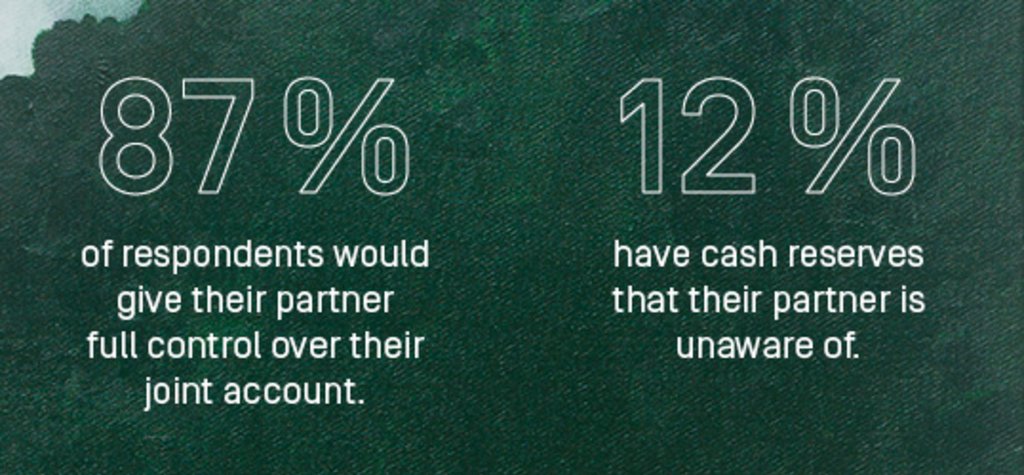How do couples approach the topic of finances, which partner takes charge of money matters, how big is the potential for arguments – and who earns the highest salary? To help us find out the answers to all these questions and more, we commissioned a study. The results clearly show that when it comes to matters of the heart (and wallet!), communication is key.
Money also plays a major role in our romantic relationships – but what kind of a role exactly? Where does it cause friction and what works well? How do couples organise their finances, how important is financial independence, who earns the most and how much do they trust each other when it comes to money matters?
We wanted to know all of that and more, which is why we conducted a representative study together with market research company YouGov. The results show that we need to do a lot more talking about money than we have been in the past.
To find out why, read our 27 fascinating findings on the topic of money and relationships:
The financial basics in relationships
Money and finances play a significant role for the respondents: 65% indicated that the topic is important or very important in their relationship.
But one in six (15%) find it difficult to talk about financial matters with their partner.
Around one in two couples (44%) in Germany have separate accounts only. 49% of couples with a joint account pay a flexible amount into it every month. And just under 44% feel that both partners should pay a fixed amount into the joint account.

Even after tying the knot, many couples still don’t opt for a joint bank account: 36% of participants say that they haven’t merged their finances, even though they are married. Prenuptial agreements are another important point to consider and weigh up when combining your finances with your partner. Here, half of all respondents (51%) stated that they don’t want a prenuptial agreement, while 30% think that they are a good idea.
And if we look at the participants in the 18-34 age bracket, it seems that younger people are more likely to agree to a prenup than older ones. 40% of 18 to 34-year-olds don’t want one, while 38% think that they make sense.
Financial independence and relationships
Financial security is either important or very important for 92% of all respondents. Only 5% indicated that it is not very important or not important at all for them.
But the majority (85%) are invested in ensuring their own financial security and do not want to be financially dependent on their partner. One in eight respondents (12%) claimed that financial independence is not very important or not important at all for them.
This also has an influence on how couples organise their bank accounts: people for whom financial independence is important or very important tend to have separate accounts (rather than a joint account).
Mutual trust and money
If they were to find themselves in an emergency situation, the vast majority of all respondents (88%) would accept financial assistance from their partner.
And just as many are extremely trusting of their partners when it comes to dealing with their personal and joint funds: 87% of respondents would give their partner full control over their joint account.

But not all respondents share everything about their personal finances with their partner: one in eight respondents (12%) have cash reserves that their partner doesn’t know about. One third (33%) of study respondents also revealed that they have withdrawn money from their joint account and used it to buy something for themselves.
Money is a cause of conflict in relationships
Over half (52%) of all respondents admit that they have argued about money with their partners. High earners with a net household income of over €4,500 a month tend to argue less about money: 54% say that money is never a cause of conflict for them.
People who believe that their partners are good with money tend to argue less about money matters. Roughly a quarter of respondents (28%) think that their partners aren’t very good with money.
All in all, 92% of respondents discuss money or financial matters with their partner, even if no more than infrequently. Half of respondents (50%) discuss money matters with their partner, whether occasionally or frequently.
What difference does gender make?
We all know that gender has an impact on our financial situation. In our study, this was demonstrated as follows:
66% of men said that they are the higher earners in their relationship, while 60% of women indicated that their partner is the higher earner.
42% of men see themselves as being primarily responsible for money matters in their relationship. This compares with just 30% of women.

Just under half (47%) of male respondents think that they and their partners are equally responsible for financial matters.
More money, more responsibility? The higher the income, the more frequently the respondents indicated that they are responsible for their own money and finances.
So, to summarise: money is important to everyone, financial independence too – and yet, with regard to gender, there is still a clear divide in terms of who takes control of money matters in a relationship. And it is precisely this discrepancy that we need to address, as there is a close link between having financial independence and being in the know about you and your partner’s joint funds.
Setting clear ground rules is also important to couples: the younger the respondents, the greater their desire for more than just verbal agreements, as shown in the result regarding prenups. Money is a common cause of conflict in relationships, which often stems from a lack of mutual trust. And the only way to solve that is by talking through it. Find out the questions you urgently need to be asking in your relationship here.
About the study: The survey was conducted in cooperation with market research company YouGov in December 2020. There were a total of 1,818 participants over the age of 18. The target group was made up of people who are in a relationship (married, civil partnership or living with a partner).
